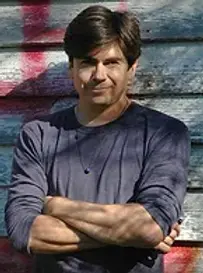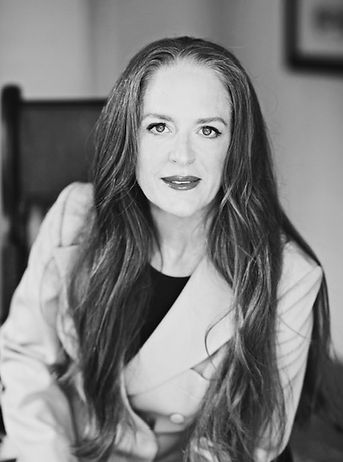ABOUT US
Welcome to Permaculture Living Lands Trust!
"A land trust combining the strengths of two global movements -- permaculture and conservation -- we are applying them to create local food sheds that are secure for future generations to inherit."
This is why Permaculture Living Lands Trust exists: To offer a base of land and knowledge in service of human ecological design. To offer the places and know-how for all people to reconnect with the Earth Commons that is our only home.
What is the Permaculture Living Lands Trust?
We created a land trust focused on permaculture design. Land trusts are nonprofit organizations acquiring land or conservation easements for long-term stewardship. Permaculture design is a worldwide movement that is helping to regenerate local ecologies and economies through a whole systems approach to meeting human needs.
What kind of synergies will result from bringing these two powerful concepts together? Answering that question is at the heart of our origin story.
One of the foundational focus areas for Permaculture Living Lands Trust is this:
As humans rise to the call to plant more and more trees to restore ecosystems and sequester carbon, let’s plant trees that also provide a sustainable harvest for local communities of food, fuel, fiber, and fodder for livestock – and let’s plant them on land that is held in trust for community AND ecological benefit.
Permaculture: Feeding The World In Our Backyards
Our Vision: A food forest in every community.
Our Mission: Establish nonprofit Agroforestry Nurseries and Community Food Forests on land held in trust and permanently protected, to provide a long-term supply of perennial and annual foods accessible to all local residents in communities throughout eastern North America.
Do you know of a project or a person that would like to donate their land or be part of:
Helping Us to Start Regenerative Farming, Permaculture Training Centers, Growing Food, Planting trees, starting nurseries and training up a new wave of designers, entrepreneurs and growers in beyond organic, ecologically restorative models of local economic development.
Permaculture Living Lands Trust Education & Training Centers
Our educational centers are designed to train individuals and communities in a new model of economic development.
It is adapted to the real needs of the region and the people who live there. These training centers are part of a larger cultural transition from a centralized high-tech industrial model of growth to a decentralized and more regionally grounded and green economy.
"Permaculture Living Lands Trust is a 501(c)(3) charitable nonprofit organization.
All contributions are tax deductible in the US."
Permaculture Design Magazine Article
Since 1985, Permaculture Design Magazine (formerly Permaculture Activist) has been one of the main publications for ecological designers and educators to share ideas and inspiration - and in the current issue, PLLT got to tell our origin story about how land trusts and permaculture can change the world!
Permaculture Living Lands Trust Team

Andrew Faust has more than 30 years of work in environmental / ecological education with high school, college-age, and adult students.
Founder and director of Center for BioRegional Living permaculture designer, teacher, and activist. Andrew is known for his dynamic teaching style and his ability to inspire people to take action and make positive changes in their communities. He’s also an advocate for social and environmental justice. He believes that permaculture can play a crucial role in addressing issues such as climate change, food insecurity, and social inequality by promoting sustainable and regenerative practices.

David Harper has more than 30 years of work with conservation land trusts, community land trusts and local food and farming organizations, resulting in permanently preserving 8,000+ acres of farmland, natural areas, and cultural and historic sites in Pennsylvania, North Carolina, and South Carolina. His role as a cofounder of PLLT is a natural progression of this nonprofit conservation career, and draws on his extensive skills and experience earned in this field, including 7 years serving as an executive director. He has designed and taught a graduate level course in land conservation at the University of Pennsylvania. He currently runs a land conservation consulting practice, Land In Common, serves on the team at Carolina Wildlands Foundation, and has worked with Agrarian Trust

Lisa DePiano has more than 15 years of experience as an environmental / ecological educator, currently designing and teaching courses in permaculture and sustainable agriculture at the University of Massachusetts, Amherst with a focus on food forests and silvopasture. She has taught permaculture design to hundreds of students in the United States and abroad, and serves as a board member for the Permaculture Institute of the Northeast. Center for Bioregional Living Ellenville/ Brooklyn, NY

Brigid Walsh has more than 25 years experience in corporate and governmental strategy.
Recently certified in Permaculture Design from The Center for BioRegional Living and a student of the Pratt Institute in Sustainable Design, Brigid segued from her corporate position at Vogue magazine into environmental design solving domestic, commercial and regional issues using Permaculture methodologies, expert negotiation skills, and thoughtful analytics.
Brigid has nurtured a deep commitment to community and the arts.
She serves as Chair of the Saugerties Town Ethics Committee, Co-Chair of the Board of Opus 40 Sculpture Park & Museum, and on the Board of the Ulster County Ethic Committee.


How we do this
Conserve land, natural systems, and resilient cultural landscapes as a permaculture commons, through legal conservation agreements, fee title ownership, and ecological stewardship.
Hold land in trust for community and ecological benefit, and long-term stewardship, as a permaculture commons.
Educate and grow the capacity of communities, nonprofits and other partners to raise funds, build awareness, and design and implement permaculture commons.






.png)





